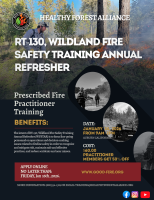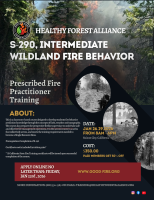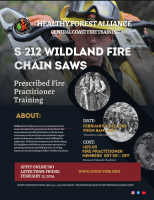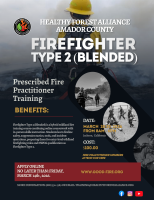"Empowering Excellence, Uniting Expertise: Igniting Tomorrow's Fire Practitioners"
S-270, Basic Air Operations
COURSE DESCRIPTION:
This course covers aircraft types and capabilities, aviation management and safety for flying in and working with agency aircraft, tactical and logistical uses of aircraft, and requirements for helicopter take-off and landing areas. Note: The regulations, procedures, and policies addressed in this course are primarily those governing federal agency and ICS operations. State, county, or other political subdivisions using this course will need to consult their agency having jurisdiction with respect to regulations, procedures and policies.
TARGET GROUP:
Personnel desiring to be qualified as Single Engine Airtanker Manager (SEMG), Helicopter Manager, Single Resource (HMGB), Aircraft Dispatcher (ACDP), and other positions that require basic knowledge of aviation operations.
PREREQUISITES:
- Satisfactory completion of pre-course work.
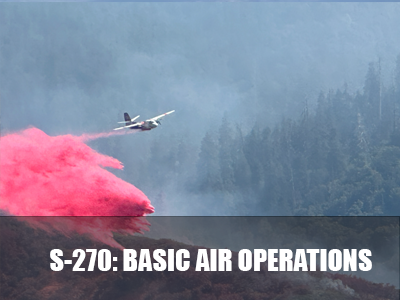
STUDENTS MUST BRING THE FOLLOWING TO CLASS:
REQUIRED MATERIALS FOR THE COURSE
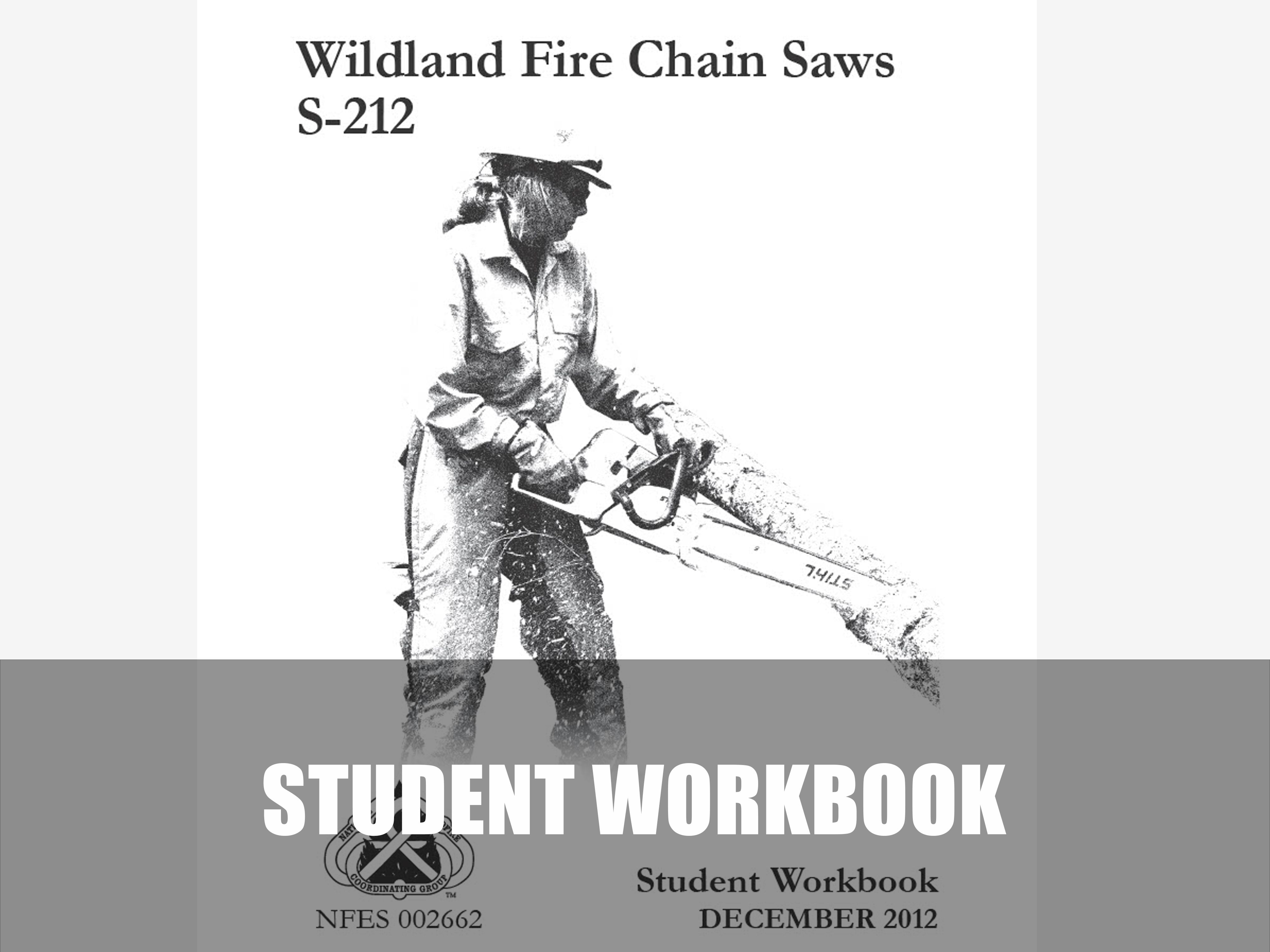
S-212 Student Workbook
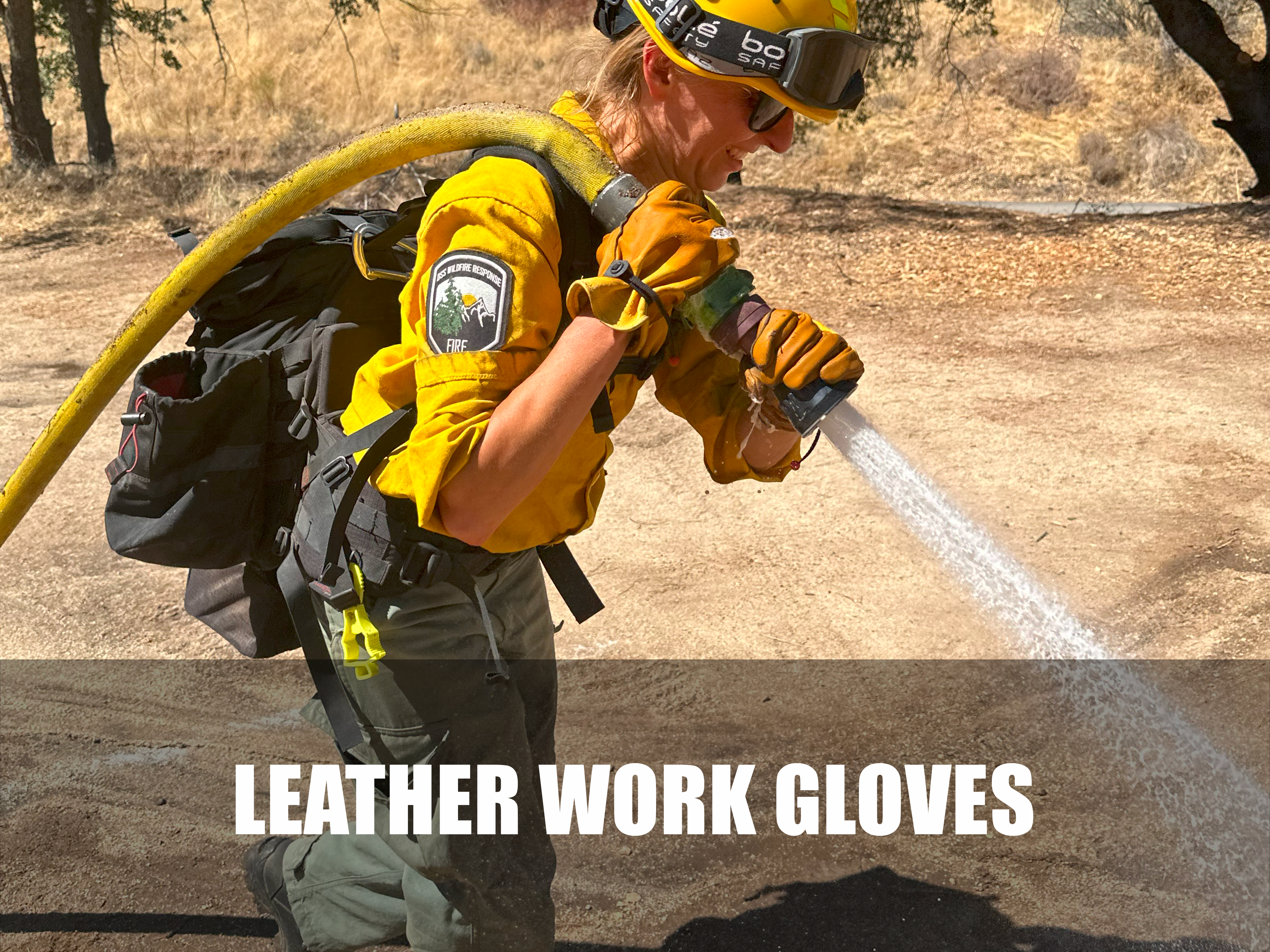
LEATHER GOVES
Gloves that are slip-resistant and appropriate for the weather conditions.

Approved Safety Glasses
Wrap-around eye protection (safety glasses or shield).

Hearing protection
Hearing protection (earplugs or muffs) with NRR (Noise Reduction Rating) of 20 or more.
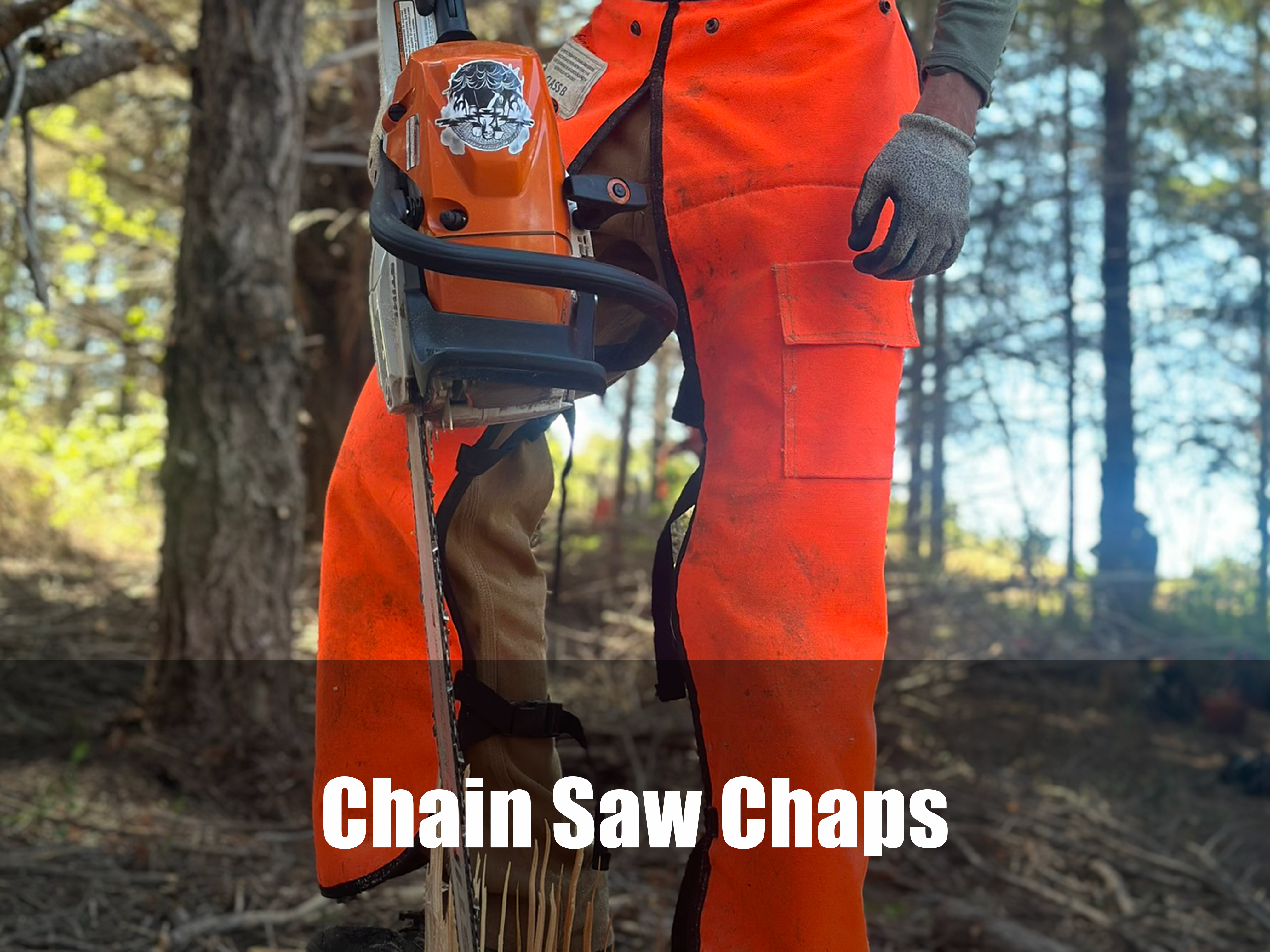
chain saw chaps
Approved chain saw chaps.

LEATHER BOOTS
Cut-resistant boots with non-slip sole (generally, leather with Vibram-sole.)

Lunch, water and snacks.
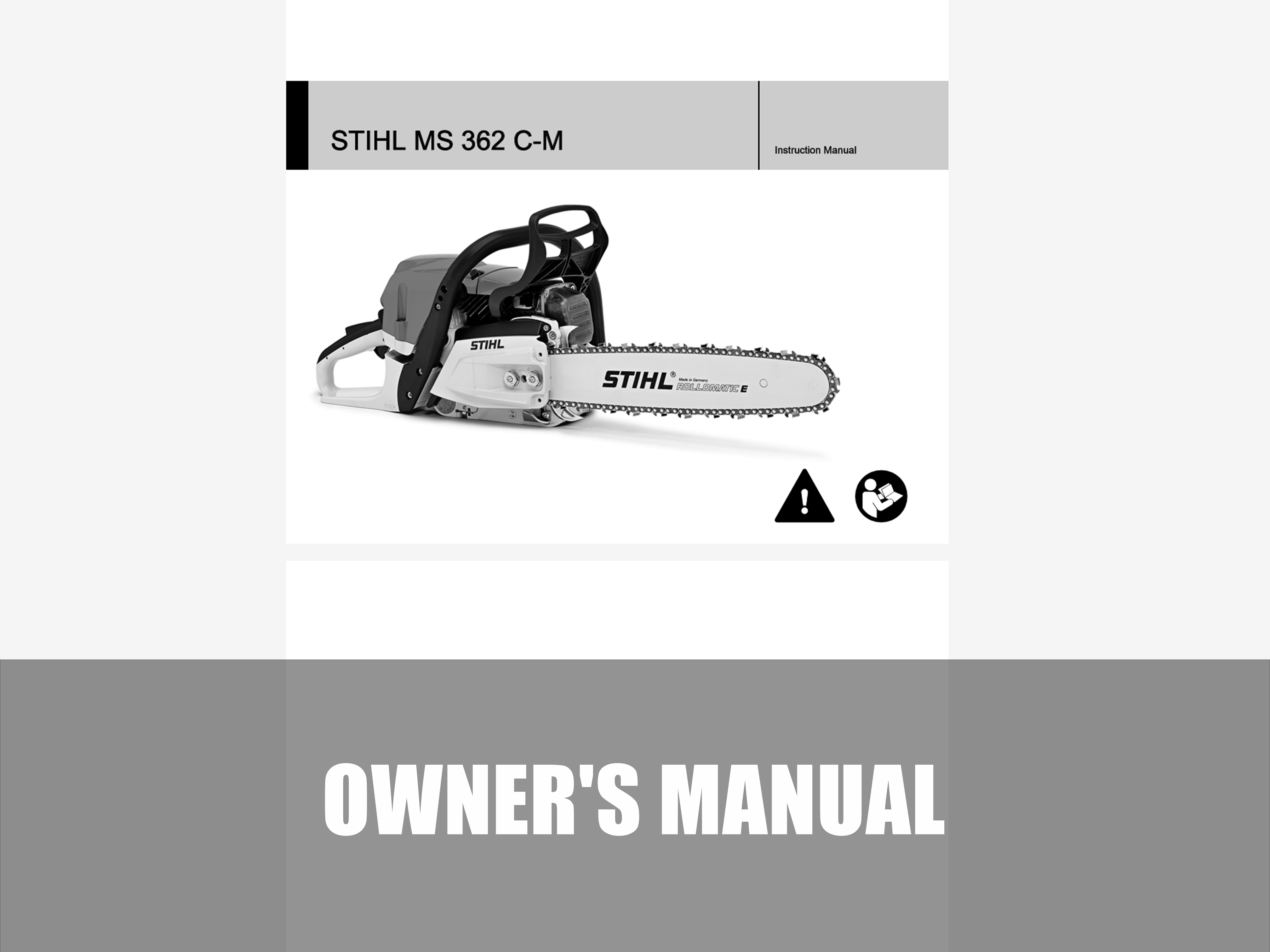
OWNERS MANUAL
Owner's manuals can be downloaded from the manufacturer websites
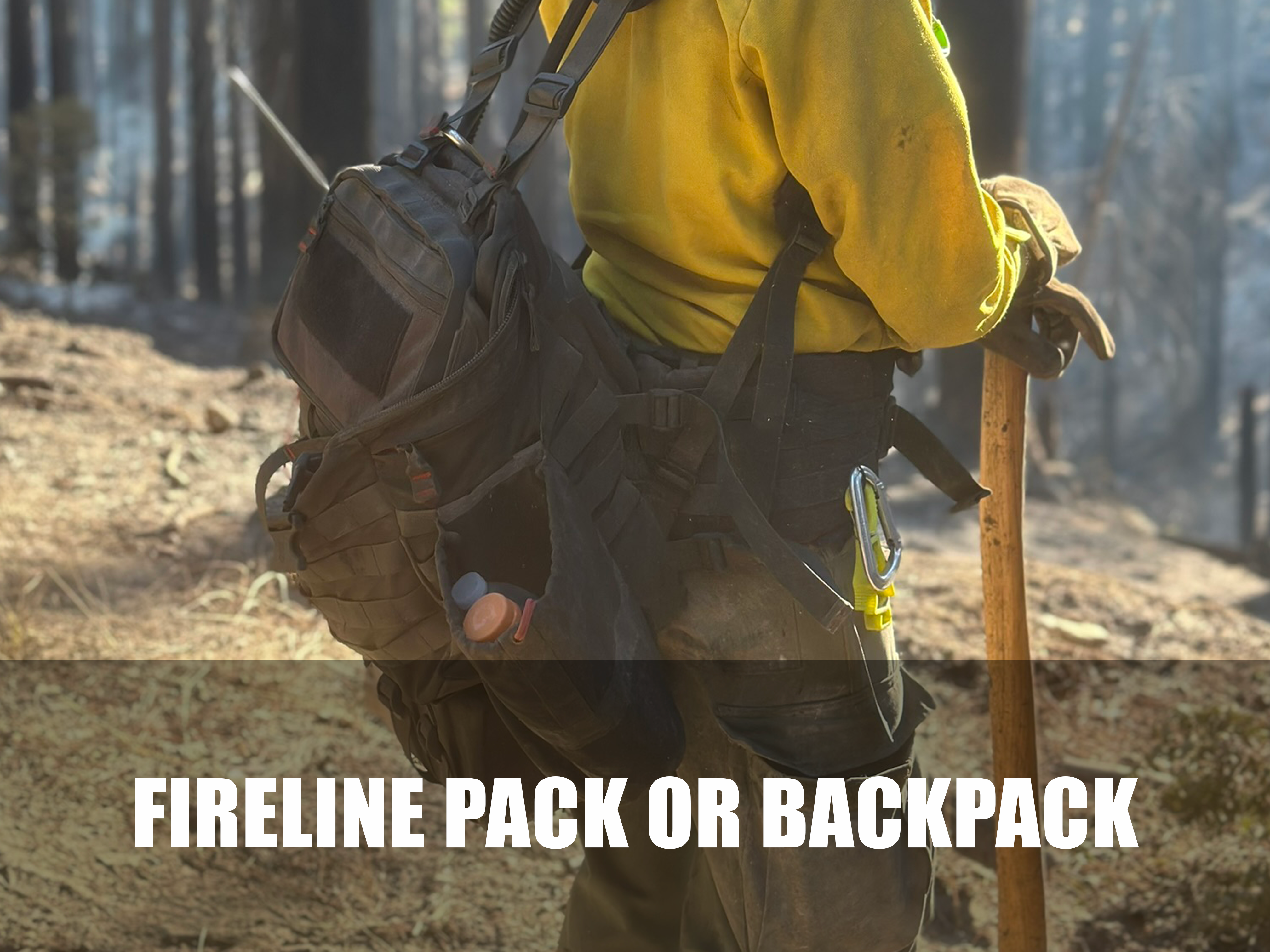
FIRELINE PACK OR BACKPACK
Day pack for field exercises

FALLING AXE, AND WEDGES
A 3-5 pound falling axe, wedges and wedge pouch.
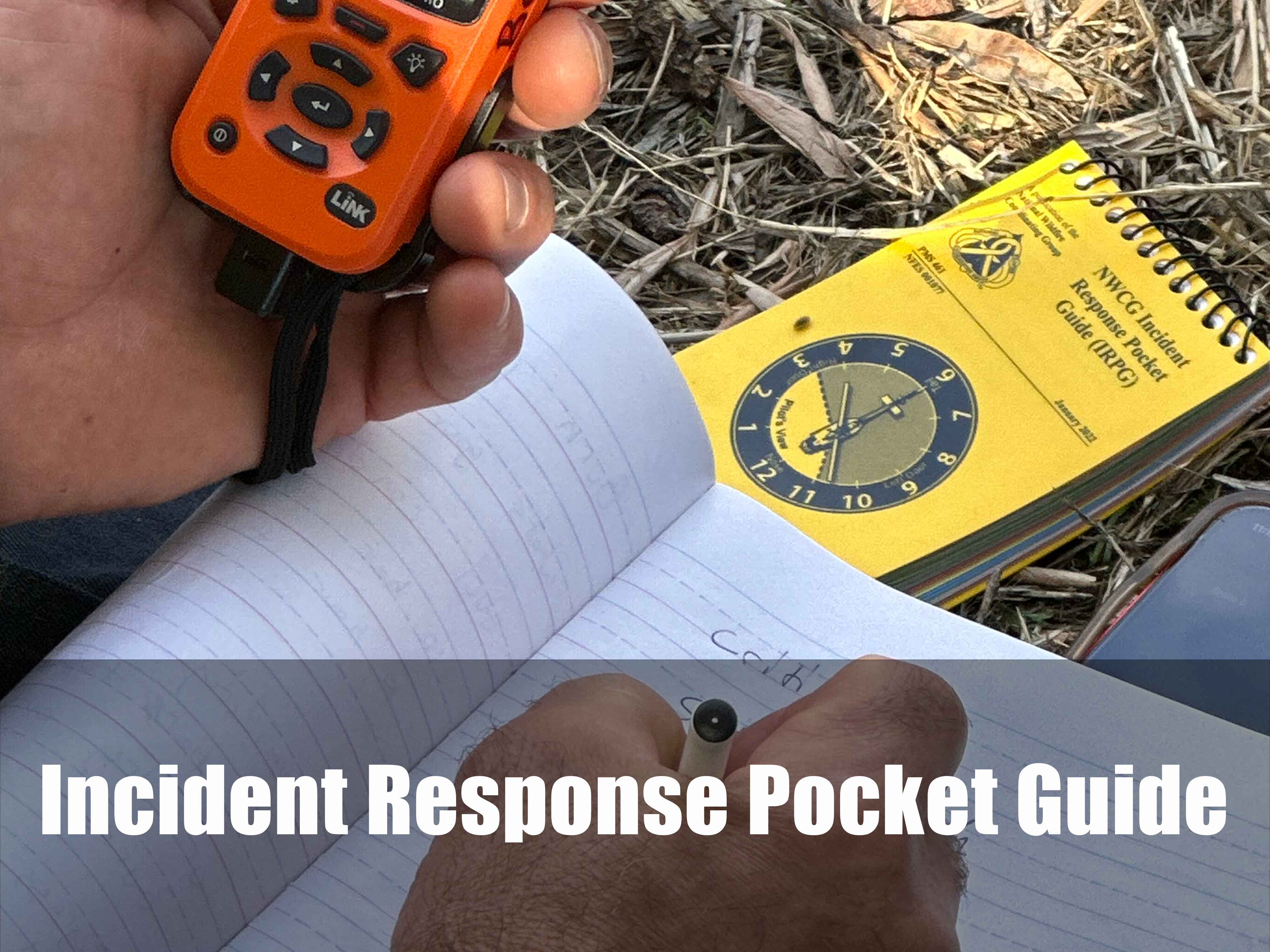
Incident Response Pocket Guide
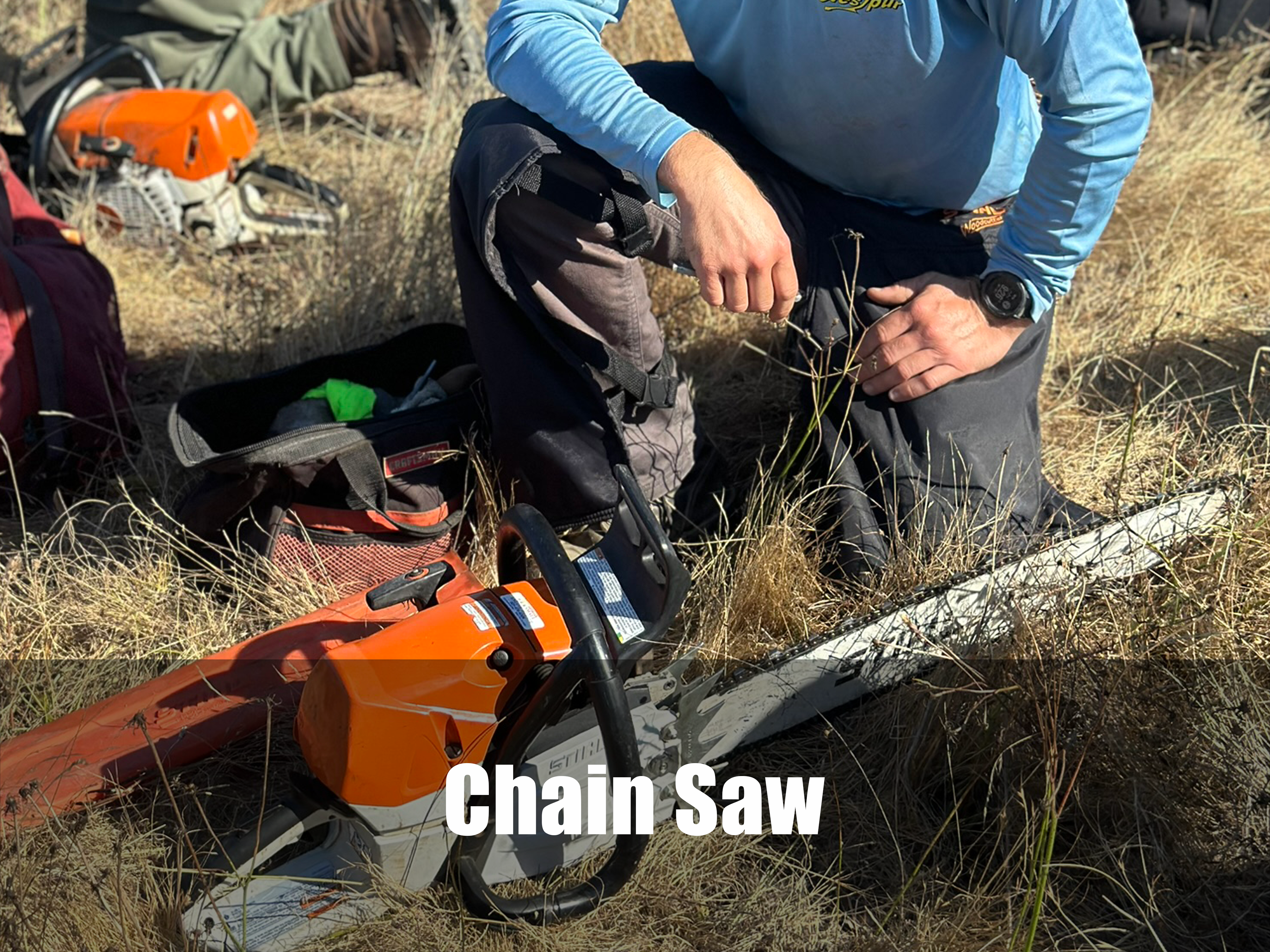
Chain Saw
A chainsaw equipped with a 20-24" guide bar in good working condition, with chain brake and saw tool kit with owner’s manual for your chain saw.
SCHEDULE FOR S-270, Basic Air Operations
Day 1 – Aviation Fundamentals and Mission Types
0800 - 0830
Unit 0: Introduction
Course overview
Learning objectives,
Expectations,
Safety briefing
0800 - 0830
0830 - 1000
Unit 1- Aircraft Types and Capabilities
Fixed- and rotor-wing aircraft
SEATs
Helicopters
UAS
1000 - 1015
Break
1000 - 1015
1015 - 1200
Unit 2 - Aviation Management and Safety
Aviation policy
Risk management
PPE
Safety zones
Comms
1200 - 1300
Lunch
1200 - 1300
1300 - 1445
Unit 3 - Aircraft Missions
Air tactical roles
Retardant drops
Recon
Medevac
Cargo support
1445 - 1500
Break
1445 - 1500
1500 - 1700
Unit 4 (Part 1) Helicopter Operations
Overview of helicopter types
Water drops
Sling loads
Day 2 – Field Application, Final Assessment & Field Trip
0800 - 0930
Unit 4 (Part 2)
Helibase setup
Helispots
Hover hookups
Aviation watch-out situations
0800 - 0930
0930 - 1030
Course Review
1030 - 1045
Break
1030 - 1045
1045 - 1145
Final Exam
Written knowledge assessment
1200 - 1300
Lunch (field)
1200 - 1300
1300 - 1500
Air Attack Base
Meet airbase staff, observe airtanker loading, review mission planning & fixed-wing use
1500 - 1545
Helitack Base
Tour helibase, observe helicopters & equipment, discuss helicopter missions & safety
1500 - 1545
1645 - 1700
Group Debrief
Student reflections, practical takeaways, and closeout discussion
UPCOMING TRAINING
RT-130, Wildland Fire Safety Training Annual Refresher
Work Capacity Test - Arduous, Moderate and Light Available
S-290, Intermediate Wildland Fire Behavior
S-212 Wildland Fire Chainsaws - Central Coast Training
Wildland Firefighter Type 2 (Blended) - Amador County
Please Support Our Corporate Members
HELPING LANDOWNERS PROMOTE HEALTHY FORESTS USING "GOOD FIRE"
how you can help
LEARN MORE ABOUT PRESCRIBED FIRE AND HOW IT CAN BE USED TO PROMOTE HEALTHY FORESTS
FROM OUR BLOG
🔥 Small Teams, Big Impact: The Rise of Micro Prescribed Burn Associations Across California,...
“So You’ve Masticated Your Land for Fire Safety… Now What?” Across California, thousands of...
🔥 The Do’s and Don’ts of Pile Burning for Property Owners in California When used correctly, pile...

